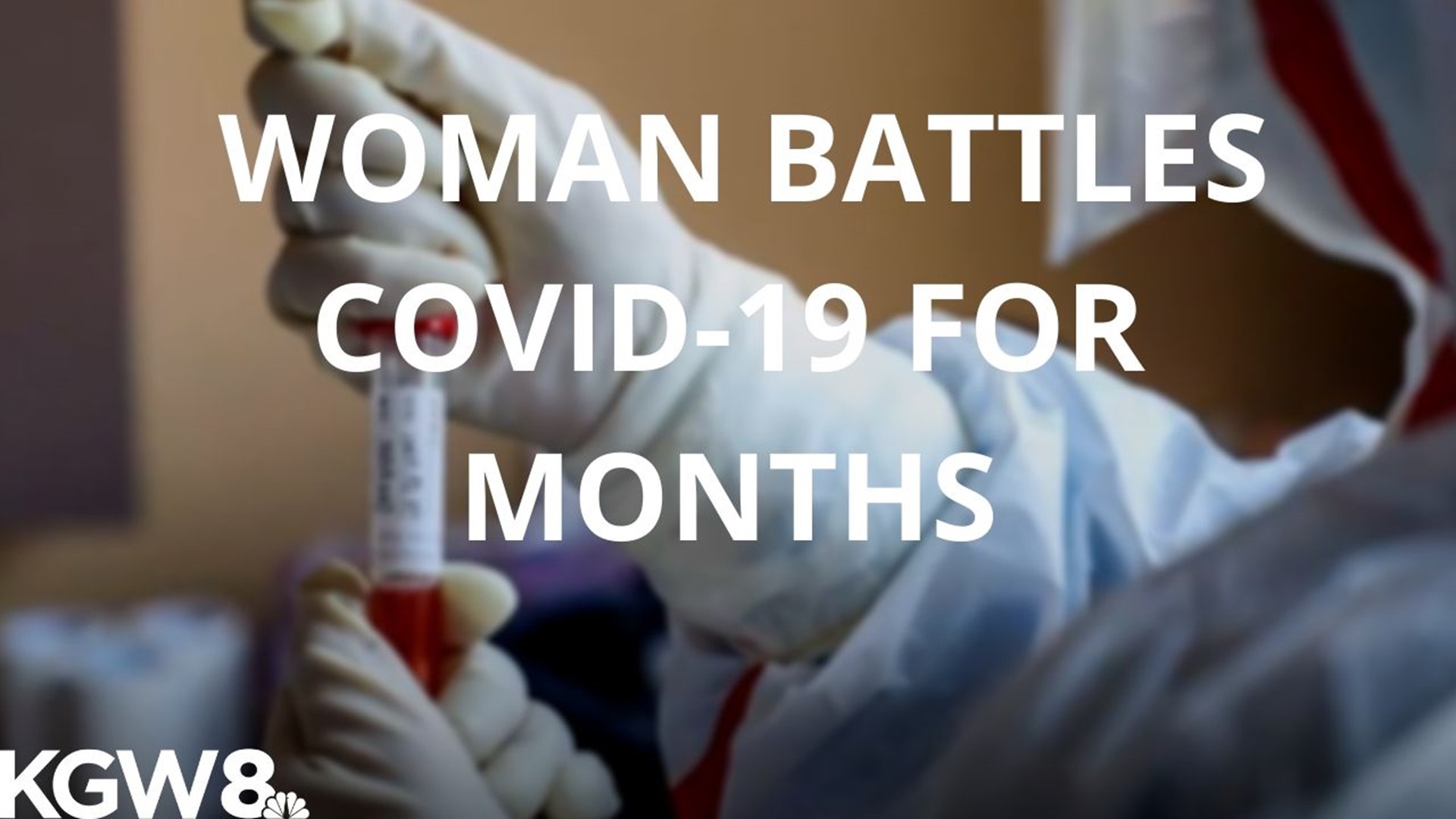KEIZER, Ore. — A Keizer, Oregon woman says she's spent the last 72 days battling COVID-19.
"Every day I wake up and don’t feel any better,” said 37-year-old Chelsea Alionar.
“I haven't seen anybody tell their story. And if nobody is telling their story, people are less conscious of what's going on,” she said. “I don’t feel like there’s a light at the end of the tunnel.
Every day, worry consumes Alionar, along with fatigue, shortness of breath and a persistent cough.
“Everything is scary because, at first this was called a respiratory virus. Then we were hearing more of it, like, attacking the heart, and hearing this is also attacking the neurological system,” Alionar said. “It’s just so scary because we don’t have answers and we don’t have data.”
She said every week she asks representatives from Oregon Health Authority, which happens to be her employer, as well as Kaiser Permanente, Marion County, and Oregon Health and Science University, if they have any solid data on recovery.
Alionar has no underlying health conditions and she is dealing with waves of coronavirus symptoms. In early March, she suffered five straight days of unbearable headaches. Those were followed by low and high fevers, chills and coughing fits.
“As soon as I got a cough, I called my doctor and did nurse triage and they told me I did not meet COVID criteria,” she said.
This was back in March, when Oregon didn't have enough testing supplies or testing capacity to administer a COVID-19 test to everyone who showed symptoms or had likely been exposed to the virus.
She didn’t actually believe she had the novel coronavirus because she began self-isolating long before Gov. Kate Brown's stay-home order and took extra protective precautions at the store and in public.
Because she works as a medical auditor for OHA, Alionar has become a medical advocate for herself and ordered all the supplies and over-the-counter medication she might need.
"I knew to stay home just in case it could have been COVID and I started doing everything for myself as if I had pneumonia or was going to get pneumonia."
Once the fatigue really set in in early April, Alionar finally got a test. At that point, the criteria had changed and testing capacity in Oregon was expanding.
She says she had a total of 26 doctor appointments and phone calls in a 30-day period before she eventually got tested.
"I was really shocked when it came back positive. But I was also really mad I was denied care because I felt like, I have amazing insurance, I have an amazing health care team, in general, and I know this is not their fault. It’s not the providers’ fault,” Alionar said, “This is the federal administration’s fault for not having a stockpile, for not doing the right things initially, dilly-dallying and not taking this seriously.”
She's frustrated with the federal government's response to this crisis and for not providing states adequate testing or personal protective equipment early on in the pandemic. By the time states received all the tests and supplies that they needed to fight the virus, it had already spread.
Alionar has visited urgent care but hasn’t been hospitalized because her O2 levels still look OK, she says.
More than 70 days in, her nebulizer helps when she’s short of breath and struggles to breathe, and she takes albuterol in between. Alionar has collected a medley of medications. Pseudoephedrine has helped mask some of her symptoms but no medicine seems to really do the trick or help improve her sickness.
She hopes that in telling her story, people who aren’t taking this seriously begin to, for the sake of everyone around them.
"This is such an isolating virus," Alionar said. "This is a time, at 37 years old, but I need my mother. I need somebody to hug. I need somebody. I need somebody to say it's going to be OK. And nobody can say it's going to be OK because nobody has data, nobody has answers!”

